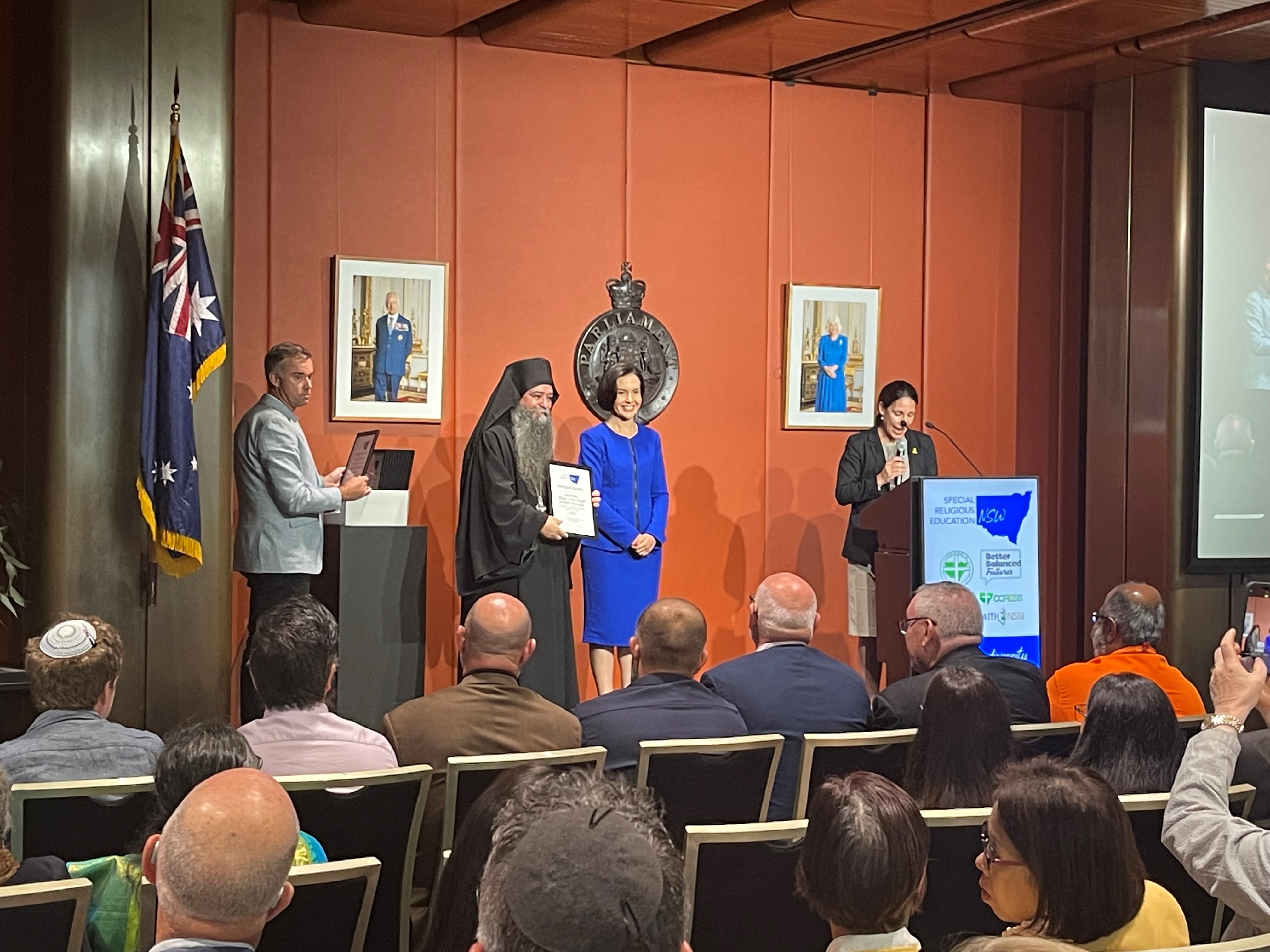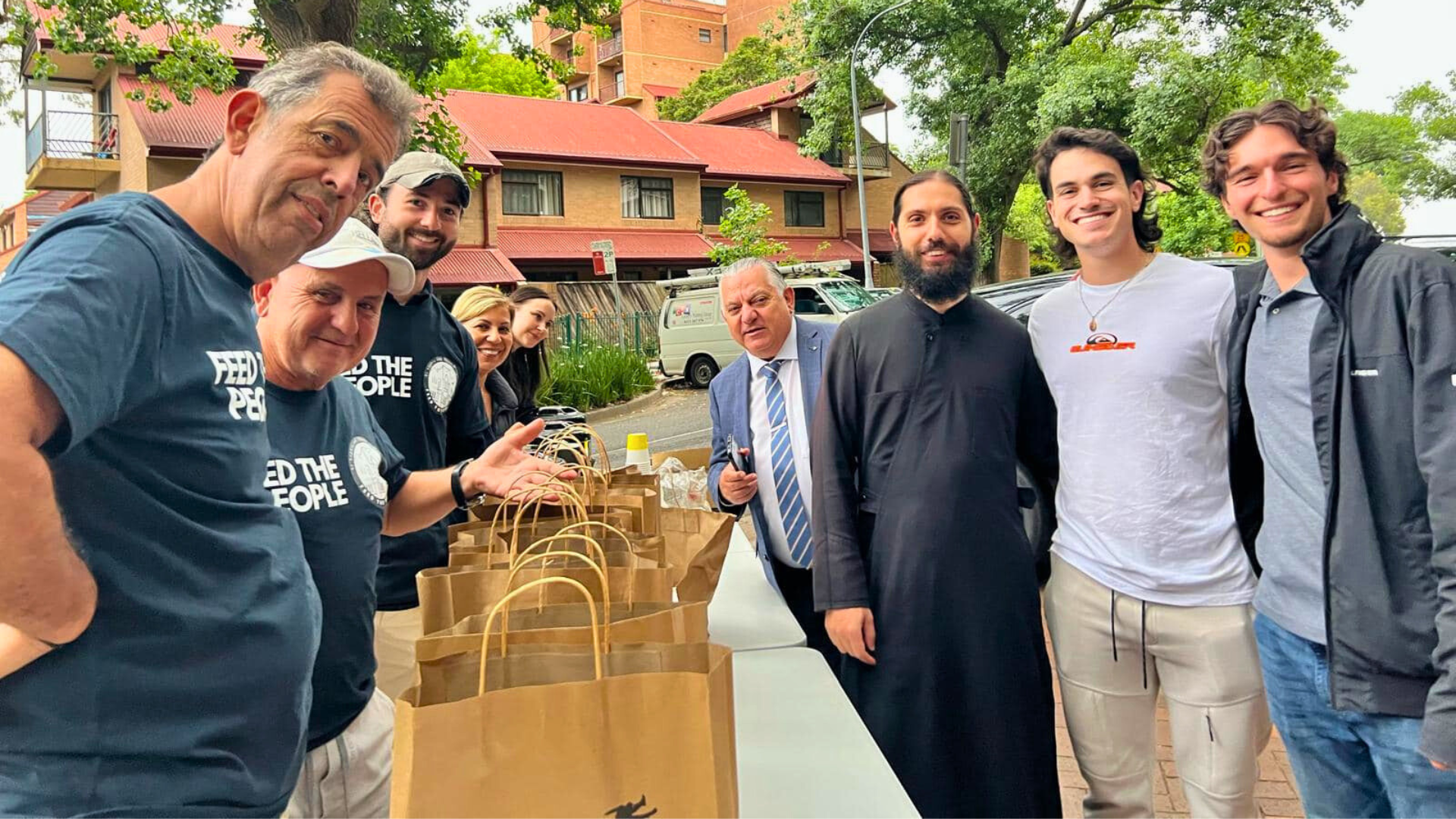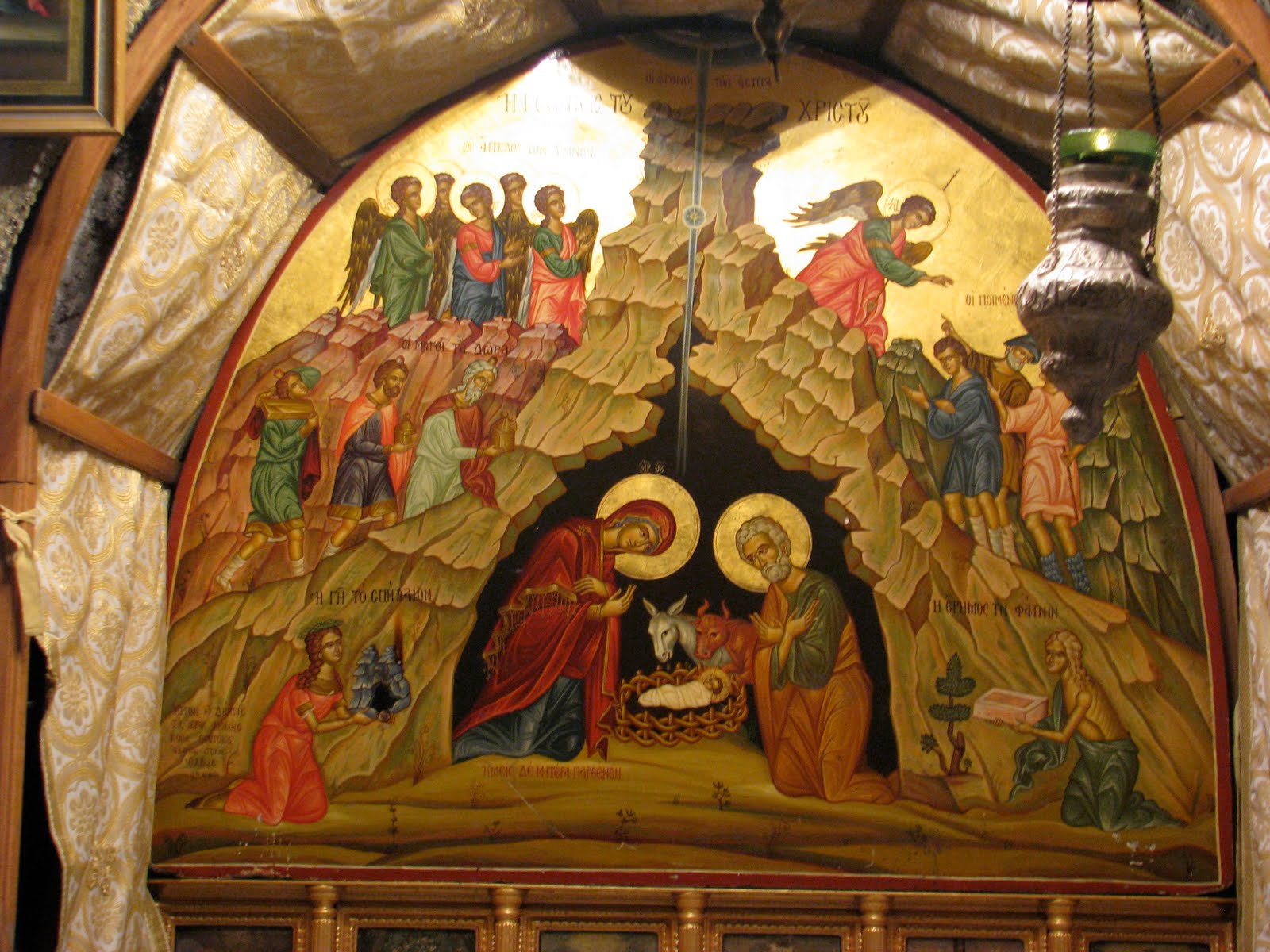Venerable Savva the Sanctified (5 December)
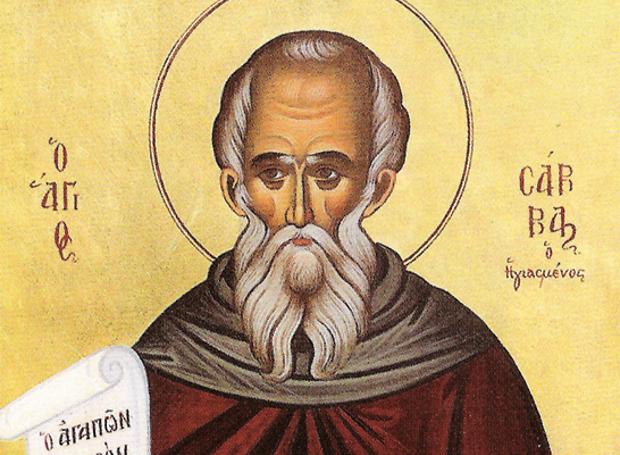

Saint Savva the Sanctified was born in the fifth century at Cappadocia of pious Christian parents, John and Sophia, and his father was a military commander. Journeying to Alexandria on military matters, John and Sophia left their five-year-old son Savva in the care of an uncle. When the boy was eight years old, he entered the nearby Monastery of Saint Flavian. The gifted child quickly learned to read and became an expert on the Holy Scriptures. His parents urged Saint Savva to return to the world and enter into marriage, but all in vain.
When he was seventeen years old he was tonsured as a monk, and attained such perfection in fasting and prayer that God found him worthy of the gift of working miracles. After spending ten years at the Monastery of Saint Flavian, he went to Jerusalem, and from there to the Monastery of Saint Euthymios the Great (January 20). Saint Euthymios, however, sent the young man to Abba Theoktistos, the head of a nearby monastery with a strict cenobitic Rule. Saint Savva lived in obedience at this monastery until the age of thirty.
After the death of Elder Theoktistos, his successor blessed Savva to seclude himself in a cave. But on Saturdays, he left his hermitage and came to the Monastery, where he took part in the Divine Services and ate with the brethren. After a certain time, Saint Savva received permission not to leave his hermitage at all, and he struggled in the cave for five years.
Saint Euthymios directed the young monk’s life, and seeing his spiritual maturity, he began to take him to the Rouba wilderness with him. They left on January 14, and remained there until Palm Sunday. Saint Euthymios called Saint Savva a Child-Elder, and encouraged him to grow in the monastic virtues.
When Saint Euthymios fell asleep in the Lord (+ 473), Saint Savva withdrew from the Lavra and moved to a cave near the monastery of Saint Gerasimos of Jordan (March 4). After several years, disciples began to gather around Saint Savva. As the number of monks increased, a Lavra sprang up. Guided by a pillar of fire which appeared before him as he was walking, Saint Savva found a spacious cave in the form of a church.
The holy Elder founded several more monasteries. Many miracles took place through his prayers: at the Lavra, a spring of water welled up, during a time of drought there was abundant rain, and the sick and those possessed by demons were also healed. Saint Savva composed the first monastic Rule of Church Services, the “Jerusalem Typikon,” followed by all the Palestinian monasteries. The Saint surrendered his soul to God in the year 532.
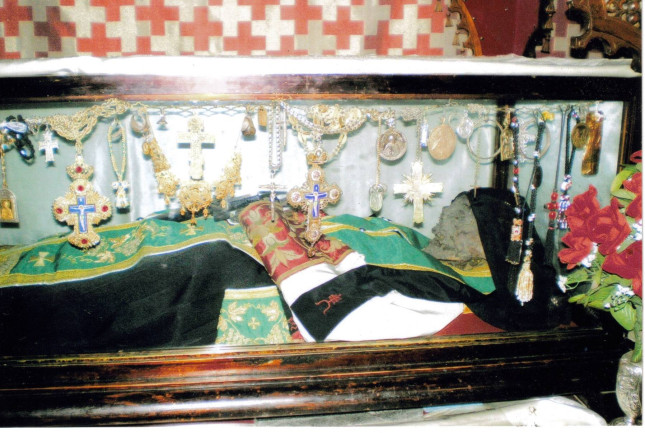

Saint Savva is depicted holding a scroll which reads: “He who loves God disdains corruptible things, and prefers the knowledge of Him.”
This Saint was born in 439 in Moutalaska, a small village of Cappadocia. He entered the arena of the monastic life from childhood and was under that master trainer of monastics, Euthymius, the Great, the teacher of the desert. He became the spiritual Father of many monks and an instructor for the monasteries in Palestine, and was appointed leader (archimandrite) of the desert-dwellers of Palestine by the Patriarch of Jerusalem. In his old age he went to Constantinople, to the Emperors Anastasius and Saint Justinian the Great, in behalf of the Orthodox Faith and the dogmas of the Council of Chalcedon. Having lived ninety-four years, he reposed in 533. The Typicon for the ecclesiastical services had its beginning in the monastery established by this righteous one.
The unknown village of Mutalaska, in the province of Cappadocia, became famous through this great luminary of the Orthodox Church. Sava was born there of his parents John and Sophia. At the age of eight, he left the home of his parents and was tonsured a monk in a nearby monastic community called Flavian’s. After ten years, he moved to the monasteries of Palestine and remained longest in the Monastery of St. Euthymius the Great (January 20) and Theoctistus. The clairvoyant Euthymius prophesied of Sava that he would become a famous monk and a teacher of monks and that he would establish a lavra greater than all the lavras of that time. After the death of Euthymius, Sava withdrew to the desert, where he lived for five years as a hermit in a cave shown to him by an angel of God.
Afterward, when he had been perfected in the monastic life, he began by divine providence to gather around him many who were desirous of the spiritual life. Soon, such a large number gathered that Sava had to build a church and many cells. Some Armenians also came to him, and for them he provided a cave where they would be able to celebrate services in the Armenian language. When his father died, his aged mother Sophia came to him, and he tonsured her a nun. He gave her a cell located at a distance from his monastery, where she lived a life of asceticism until her death. This holy father endured many assaults from all sides: from those who were close to him, from heretics, and from demons. But he triumphed over them all: those close to him, by kindness and indulgence; the heretics, by his unwavering confession of the Orthodox Faith; the demons, by the sign of the Cross and calling upon God for help.
He had a particularly great struggle with demons on Mount Castellium, where he established his second monastery. In all, Sava established seven monasteries. He and Theodosius the Great, his neighbor, are considered to be the greatest lights and pillars of Orthodoxy in the East. They corrected emperors and patriarchs in matters of the Faith, and to everyone they served as an example of saintly humility and the miraculous power of God. After a toilsome and very fruitful life, St. Sava entered into rest in the year 532 A.D., at the age of ninety-four. Among his many wondrous and good works, let it at least be mentioned that he was the first to compile the Order of Services for use in monasteries, now known as the Jerusalem Typicon.
Apolytikion of Sabbas the Sanctified
Plagal of the Fourth Tone
With the rivers of your tears, you have made the barren desert fertile. Through sighs of sorrow from deep within you, your labors have borne fruit a hundred-fold. By your miracles you have become a light, shining upon the world. O Savas, our Holy Father, pray to Christ our God, to save our souls.
Kontakion of Sabbas the Sanctified
Plagal of the Fourth Tone
O blessed Sabbas, thou wast offered from thine infancy through thy great virtue as a pure and spotless sacrifice unto God, Who ere thy birth, verily foreknew thee; wherefore thou wast an adornment of the righteous Saints, an all-praised founder of cities in the wilderness. Hence, I cry to thee: Rejoice, O Father of great renown.
Source: oca.org / goarch.org / westserbdio.org


